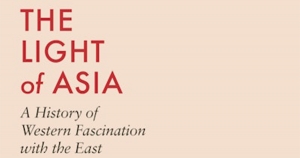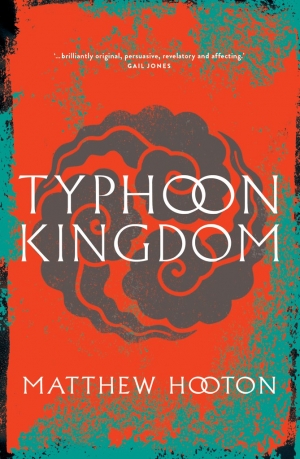Alison Broinowski
Alison Broinowski reviews ‘The Light of Asia: A history of Western fascination with the East’ by Christopher Harding
The world isn’t quite what it seems. We often imagine the modern world as if it were a halved orange, East clearly separated from West. For centuries, the West has claimed superiority over the Rest, despite knowing little about them, as Edward Said copiously showed in Orientalism (1978). An equally influential proposition in The Clash of Civilisations (1996) was Samuel Huntington’s. He saw the world of Islam as having ‘bloody borders’ and being pitted in conflict with the West over cultural differences. In 1984 (1949), George Orwell imagined two fictional hemispheres in conflict, Eurasia and Eastasia, leaving unresolved the problem of what to do about Oceania.
... (read more)When Australians working in diplomatic posts share anecdotes, the best usually come from the consuls. They recount travellers’ tales of love and loss, dissipation and disaster, adventure and misadventure from Australians perpetually on the move – at least until the pandemic. It’s the consuls’ job to help those who are injured, robbed, kidnapped, arrested, or otherwise distressed abroad.
... (read more)Alison Broinowski reviews 'Dreaming of East: Western women and the exotic allure of the Orient' by Barbara Hodgson and 'Women of the Gobi: Journeys on the Silk Road' by Kate James
Jane Austen’s latest biographer, Jon Spence, observes that by deciding to support herself by writing rather than live on a husband’s income, Austen was spared the likelihood of annual pregnancies, exhaustion, infection and early death, fates that confronted many married women of her day. Another means of avoidance was travel abroad. That was not the only motive, of course, of the many European women who, from the early eighteenth century, attracted admiration, censure and curiosity by combining writing and travel. Nor did it always work.
... (read more)Alison Broinowski reviews 'Good International Citizenship: The case for decency' by Gareth Evans
Over the course of a long and distinguished public life, Gareth Evans has held fast to his conviction that as individuals aspire to personal decency and moral behaviour, the same should be replicated among nations. As a foreign minister and an author, and in his international organisations and academic roles, Evans has consistently advocated ‘good international citizenship’. Care for our common humanity he sees as both a moral imperative and a national interest.
... (read more)Alison Broinowski reviews 'The Genius of Donald Friend: Drawings from the diaries 1942–1989' by Lou Klepac
Here we have the first intimations of the coming flowering of the Donald Friend diaries, which are to be published by the National Library with support from Morris West’s benefaction. Friendliness was not always the same as ugliness or cleanliness when he was alive. So, it is somehow comforting that two Australian artists, so different from each other in lifestyle, should after their deaths find common cause.
... (read more)Much political mileage has been made in Australia from the turning back of ‘boat people’. Travel by boat is the cheapest means of getting to this island continent, and the most dangerous. Boat travellers are the poorest and the most likely to be caught and deported or sent to an offshore camp. But their number is less than half of those who arrive by air as tourists and apply for refugee protection: some 100,000 have done so during the seven years of this Coalition government.
... (read more)Alison Broinowski reviews 'Project RAINFALL: The Secret History of Pine Gap' by Tom Gilling
Since the 1960s, US military bases have continuously occupied Australian territory, with the permission of successive governments. Of the original sites, the missile-launch tracker Nurrungar is closed and North West Cape no longer communicates with US nuclear submarines, but it has since gained space surveillance and military signals intelligence functions. Pine Gap ...
Alison Broinowski reviews Japan Story: In Search of a Nation, 1850 to the present by Christopher Harding
Our tutor in Japanese conversation at the Australian National University in 1968, rather than listen to us mangling his language, used to write the kanji for all the political factions on the board, with a Ramen-like chart of connections looping between them and multiple interest groups ...
... (read more)Alison Broinowski reviews 'The Violent American Century: War and Terror since World War II' by John W. Dower
A week after the Manchester Arena bombing, it emerged in the British media that MI5 had been warned about some of the terrorists but had apparently done nothing. M16, moreover, had reportedly encouraged British Libyans to join the 2011 civil war against Gaddafi. Their relatives, including the Manchester bomber, later went back and forth unimpeded between the United Kingdom and Libya.
... (read more)









